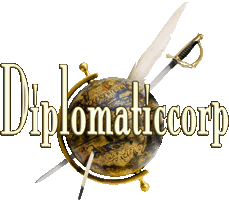There is a wide range of responses to this tactic, and you are correct that some players deplore this tactic -- myself included.
My reasons are thus: like PBM Diplomacy before it, online Diplomacy is an adaptation of ftf Diplomacy. The board game was designed to be played in person. As such, all negotiations are verbal. There is no opportunity to forward a message. Someone can TELL you that Austria is scheming like mad against you, but you have nothing more than their say-so. Ignoring the possibility of faked messages, being able to actually forward another player's email changes the whole dynamic of negotiating, and not for the better, IMO. Some people regard forwarding emails to be the tactic of a weaker player.
Forwarding emails is not without its risks. Some players get extremely upset with this tactic, and will immediately turn against any player caught forwarding their mail. A player caught forwarding email also risks becoming known for this tactic, which will make it far less likely for other players to discuss sensitive topics with them, a real liability in Diplomacy. If you play consistently with the same group of players, it could become fatal to acquire the reputation as someone who will forward emails.
To be fair there are players who do not have a problem with the ethics of forwarding email, although I believe them to be in the minority. Perhaps others can weigh in on this as well.

